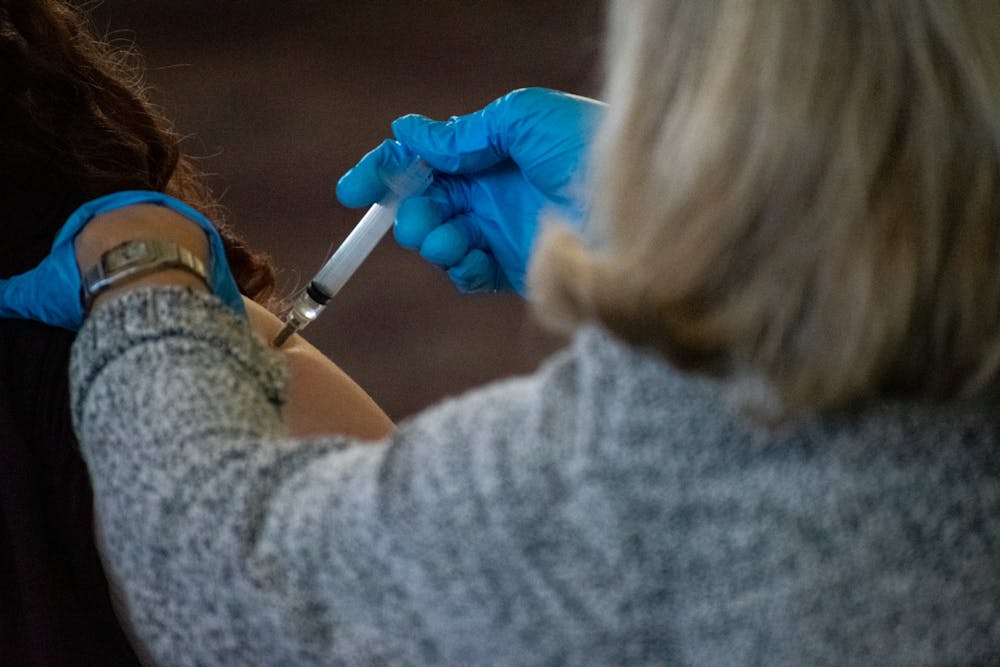Staying healthy when returning to classes
As students are returning to Central Michigan University, a measles outbreak continues across the United States and Michigan, with at least three cases recently reported in Osceola County, a neighbor to Isabella County.
Dr. Jennifer Morse, medical director of Central Michigan District Health Department, said the outbreak was caused by the low vaccination rates this year, and spread to Michigan when people travelled outside the state and brought in the infection.
“For your situation at the university, you have a lot of people coming into an area from all over the country and all over the world, and you hope that everyone's immune, but you don't know,” Morse said. “It's always a concerning time for any infectious disease, but particularly measles, which is really contagious.”
Measles is an airborne disease that begins with high fever, cough, runny nose, rash and can lead to different complications, according to the Centers for Disease Control and Prevention website. Children under the age of 5, adults older than 20 and people with weakened immune systems are the most at risk.
There has been a total of 1,356 cases of measles in the United States and up to 49 cases in Michigan so far this year, according to CDC data.
“Measles is the most contagious infectious disease that we have in existence,” Morse said. “If someone in a room has measles, once they leave that room, the air stays contagious with measles for two hours after they leave.
“If you have multiple individuals that are not immune, whether they've not had the disease in the past or they've not been vaccinated, nine out of 10 of them will become infected if they get exposed, and then if they go on to expose others.”
But measles isn’t the only disease that students returning to school are at risk of.
Fall is the season when colds and flus begin, Morse said. Whooping cough is another concern doctors have for returning college students, according to Morse.
Whooping cough, or pertussis, is a respiratory illness that leads to severe coughing with a loud “whooping sound.” It’s especially severe for babies, according to Michigan’s Department of Health and Human Services website.
Whooping cough cases have been on the rise this year in Michigan, reaching 497 cases in April, HHS data showed.
Michigan’s Chief Medical Executive Natasha Bagdasarian said that's a large number, according to WCMU’s reporting.
“The prevalence of diseases like pertussis, and these are vaccine-preventable diseases, these are on the rise,” Bagdasarian said in the article. “We're seeing this not only with pertussis. ... We're seeing these communicable diseases make a big comeback.”
But what can help students protect themselves from measles or whooping cough is vaccination, Morse said.
“There's just many different infectious diseases that can be prevented by vaccination,” she said. “It’s really important for students to make sure they're up to date.”
If the vaccines aren’t up to date, students can schedule an appointment with CMDHD or CMU’s Student Health Services.
Besides vaccination, Morse had other advice on how to stay healthy during the beginning of the school year. She said it’s important to keep a regular sleep schedule, get some exercise, eat healthier foods, drink enough water and avoid alcohol or smoking.
Morse also recommended wearing a mask if you’re sick, or if you’re going to a place where other people are sick, as well as keeping the air clean and opening windows when possible.




